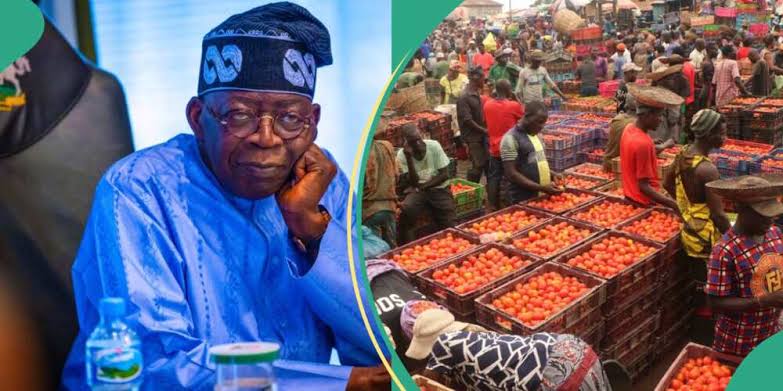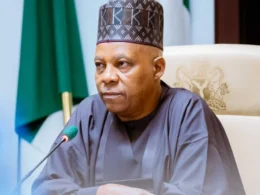Inflation continue to plague Nigeria as the latest data from the National Bureau of Statistics (NBS) reveals a disconcerting upward trend. The headline inflation rate surged to 31.70% in February 2024, marking a notable increase from January 2024’s rate of 29.90%. This uptick underscores the intensifying pressure on the average price level, exacerbating economic challenges across the nation.
In February 2024, the inflation rate soared by 1.80 percentage points compared to the preceding month, signaling a rapid acceleration in price levels. Such a steep rise underscores the mounting difficulties faced by consumers and businesses alike, as the cost of living and production continues to escalate.
On an annual basis, the situation appears even more dire, with February 2024’s headline inflation rate surpassing the corresponding figure from February 2023 by a staggering 9.79 percentage points. This alarming year-on-year comparison paints a grim picture of Nigeria’s economic landscape, highlighting the persistent struggle against spiraling inflationary pressures.
The latest NBS report, released on Friday, serves as a stark reminder of the enduring challenges confronting the nation. Notably, the headline inflation rate for February 2024 surpassed the figure recorded in the same month of the previous year, further underscoring the deepening crisis. This sustained upward trajectory in inflation rates underscores the profound structural issues within Nigeria’s economy, necessitating urgent and decisive action from policymakers.
Delving deeper into the data, the month-on-month comparison reveals a concerning trend. February 2024 witnessed a month-on-month inflation rate of 3.12%, representing a notable increase from January 2024’s rate of 2.64%. This uptick underscores the relentless march of inflationary pressures, posing significant challenges to households and businesses grappling with rising costs and diminishing purchasing power.
The ramifications of Nigeria’s escalating inflationary environment are manifold and far-reaching. For consumers, the erosion of purchasing power translates into higher prices for essential goods and services, placing a strain on already stretched household budgets. Meanwhile, businesses face mounting input costs, squeezing profit margins and stifling investment and expansion plans. Inflationary pressures also pose risks to macroeconomic stability, undermining efforts to achieve sustainable growth and development.
The root causes of Nigeria’s inflationary woes are multifaceted and complex, reflecting a combination of domestic and external factors. Structural bottlenecks, supply chain disruptions, currency depreciation, and fiscal imbalances all contribute to the prevailing inflationary environment. Additionally, persistent insecurity, including insurgency and banditry, further exacerbates supply-side constraints, driving up prices and exacerbating economic instability.
Addressing Nigeria’s inflationary challenges requires a comprehensive and coordinated policy response. Monetary authorities must maintain a vigilant stance on price stability, implementing prudent monetary policies to curb inflationary pressures while supporting economic growth. Fiscal policymakers, meanwhile, must pursue measures to address structural inefficiencies, enhance productivity, and promote investment and job creation.
Moreover, efforts to bolster agricultural productivity, enhance infrastructure, and promote diversification are essential to mitigate supply-side constraints and reduce reliance on imports. Strengthening institutional capacity, improving governance, and fostering transparency are also crucial for restoring confidence and attracting investment in Nigeria’s economy.
In conclusion, Nigeria’s escalating inflationary pressures underscore the urgent need for decisive action to address underlying structural challenges and restore macroeconomic stability. With inflation rates reaching alarming levels, concerted efforts from policymakers, businesses, and civil society are imperative to navigate the current crisis and pave the way for sustainable economic growth and development. Failure to act decisively risks further eroding living standards, exacerbating social tensions, and undermining Nigeria’s long-term prosperity.










Join our Channel...